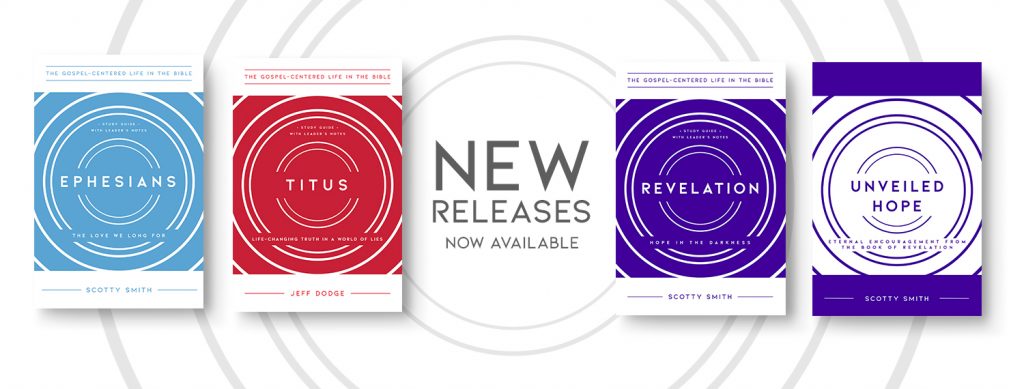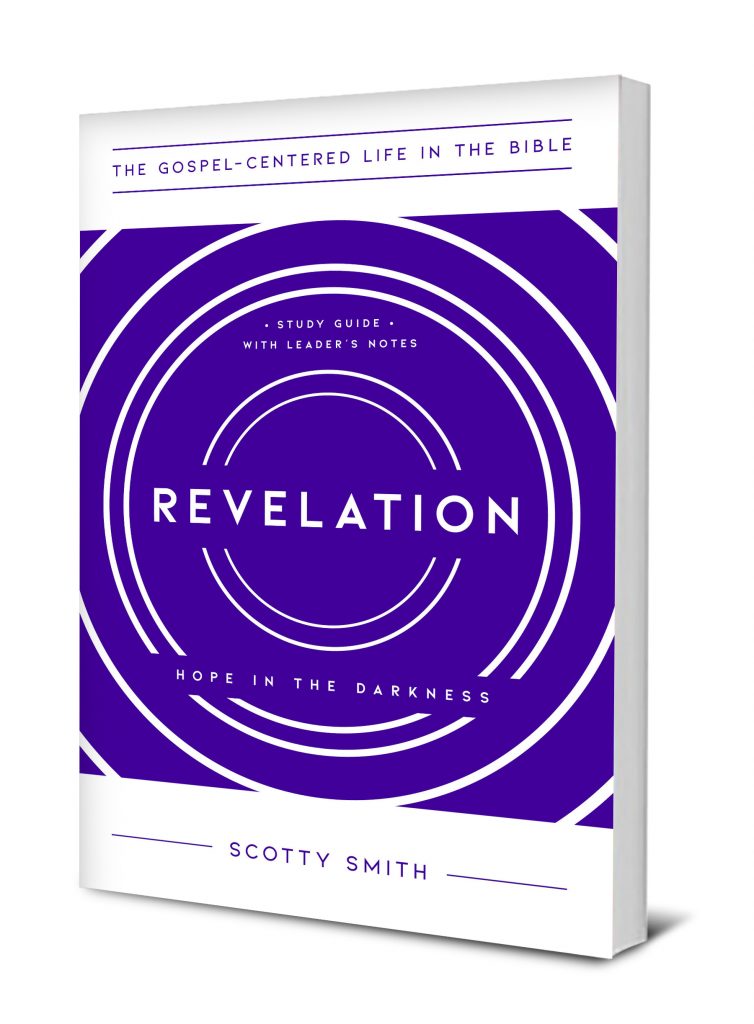I don’t believe there’s a single verse in all twenty-two chapters of the book of Revelation that wasn’t intended to deeply encourage both the original recipients and every generation of God’s people. It’s a timeless book because its main character, Jesus Christ, is the same “yesterday, today, and forever” (Hebrews 13:8). It’s a timely book, because was it was written for believers who are alive in the “last days.” According to the Scriptures, this is the entire period between the birth and return of Jesus. We fit in that slot quite nicely.
Of my fifty favorite things about the Book of Revelation, I’ll mention five that certainly offer considerable perspective and hope for us today.
1. Jesus is the ruler of the kings of the earth, including premiers, presidents, and potentates.
My oh my—hasn’t 2020 been a doozy? And to think we’re less than two months away from a presidential election in the United States. As a child of the 60s, I’ve lived through all kinds of political machinations and madness.
One of my earliest memories of the fragility of life in our global political community occurred when I was a seventh grader in Graham, North Carolina. In October 1962, Russian Premier, Nikita Khrushchev and American President John F. Kennedy engaged in a tense, thirteen-day political and military standoff over the installation of nuclear-armed Soviet missiles on Cuba, just 90 miles from U.S. shores. Many thought we were on the cusp of World War III.
Then, in my late high school and early college years, I lived through the Vietnam War years, replete with all kinds of upheaval, threats, and political instability. If you do the math, you can quickly add to the list of national and international turbulence I have lived through in my 70 years of life.
Back when John wrote the book of Revelation, his world was even more unpredictable. John, probably in his early or mid-80s, survived the Nero years, and now, the megalomaniac emperor Domitian was in charge. His was a reign of terror, and persecution of Christians went from episodic to systemic. Yet right out of the gate, John begins his letter boldly affirming that “Jesus is the ruler of the kings of the earth” (Revelation 1:4–5). Faith, not fear, was the order of the day.
We need to recalibrate our hearts to this good news about Jesus. Many of us live as though the future of the church, America, and the world is tied to who occupies an oval office in a very white house. We need to recalibrate and remember who is really in charge. Jesus’s reign is supreme and unending, and he “upholds the universe by the word of his power” (Hebrews 1:3).
2. Jesus isn’t joining the de-churching trend
I de-churched long before it was popular. Having grown up in the “institutional church,” I left it soon after becoming a Christian, during the Jesus Movement of the 60s and 70s. My cry became, “Don’t give me church, give me Jesus.” I was angry because I felt I had to leave the church to finally hear the gospel. I felt cheated and robbed. Why go back to a place that seemed to be full of spiritual deadness and thievery?
But the book of Revelation makes it very clear. The church, with all of her faults and shortcomings, is still central to God’s plan of redemption and restoration in the world. What is also patently clear is if we think we see a lot of disheartening things in the church today, read Revelation 2–3. There we’ll find Jesus himself saying to his Bride, “You are so much more broken, messy, and needy than you realize. But you’re also so much more loved and cherished than you can imagine.”
We need to study Revelation today to learn what Jesus thinks about his church, and what he wants in his Bride. We need to die to both our wishful dream of the “perfect church,” and our growing cynicism about our collective faults.

3. The throne of heaven is comfortably, joyfully occupied.
So, as John, the elderly pastor and apostle wrote to his beloved friends and the churches of Asia Minor, what was the most important image he wanted to burn into their hearts and imprint on their imaginations? Right in the middle of the chaos of their current lives, and on the cusp of things getting a whole lot messier, John shares what he saw, and heard, in a most centering, encouraging, peace-giving vision.
“After this I looked, and there before me was a door standing open in heaven. And the voice I had first heard speaking to me like a trumpet said, ‘Come up here, and I will show you what must take place after this.’ At once I was in the Spirit, and there before me was a throne in heaven with someone sitting on it.”
Revelation 4:1–2 NIV
There’s certainly much more, but two things stand out to me in this motherload of a passage. First of all, the word “must.” John was shown what must take place—not might, not possibly, not in all likelihood. We need to recapture the wonder of believing all of history is tied to God’s commitment to redeem for himself an every-nation family, and eventually, finish making all things new through Jesus.
Secondly, we need to see and savor the occupied throne of heaven. John didn’t just see a very impressive jewel encrusted symbol of power, but an actively occupied throne. The sovereignty of God isn’t a doctrine we live to defend. It’s a reality we are called to humbly enjoy. There was no panic in heaven in John’s day, and neither is there in ours. Our God doesn’t promise to do all things easily, comfortably, or acceptably to us. But he does do all things well.
4. The identity of the Antichrist isn’t very important, but there’s always so much more to understand about the person and work of Jesus Christ.
Not to unnecessarily project some of my old Revelation trauma into this blog, but too often the book of Revelation is presented in such a way as to fuel a lot more fear than faith. The identity of the nefarious figure called Antichrist, decoding the triple digit symbol 666, and trying to make contemporary associations with every beast, wart, and horn has led to a ton of confusion, and has sabotaged the true intent of the book.
The book of Revelation is essentially an “unveiling” by Jesus about Jesus. To read through the book the way it is designed is to discover it to be a guide for gospel-centered worship service between the time of the resurrection and the return of Jesus.
Notice I didn’t say “a worship service,” but worship service—all of life lived to the glory of God. In response to everything Jesus is, has done, is doing, and will be to us through eternity, this is what our lives are to be about. To say, “There is nothing more than the gospel, just more of the gospel,” really means, “There’s nothing more than Jesus, just more of Jesus.” The book of Revelation is rocket fuel for hope and for missional living and loving until Jesus returns.
5. This world isn’t our home, yet.
Lastly, the book of Revelation is a critical read and study in our day, for rescuing those of us who have been wrongly taught that our world—planet earth, is destined for fiery destruction and annihilation. Revelation 21–22, not only the last vision in the book but also the last vision in the entire Bible, gives us a most enthralling picture of what the Old Testament prophets referred to as the “new heaven and new earth.”
As surely as our bodies will be raised and glorified when Jesus returns, so all of God’s creation will be purified, healed, and brought to the fullness of God’s eternal plan. God hasn’t written us into a story of replacement, but redemption. Jesus didn’t say he is making all new things when he returns, but that he is making all things new. This grand promise and hope compel us to live, not just sing, one of our favorite Advent hymns, “Joy to the Word.” Indeed, Jesus has come to make his blessings flow far as the curse is found. One Day the earth, this earth, will be filled with the knowledge of the glory of God (Habakkuk 2:14). The book of Revelation calls us to worship and live in light of this amazing reality.
REVELATION: HOPE IN THE DARKNESS
When the difficulties of life suggest that evil and chaos reign, we need to see that God occupies the throne in heaven and rules this world. Revelation: Hope in the Darkness by Scotty Smith reminds us that in troubled times our hope is in our champion Savior who is with us and will one day make all things right.






